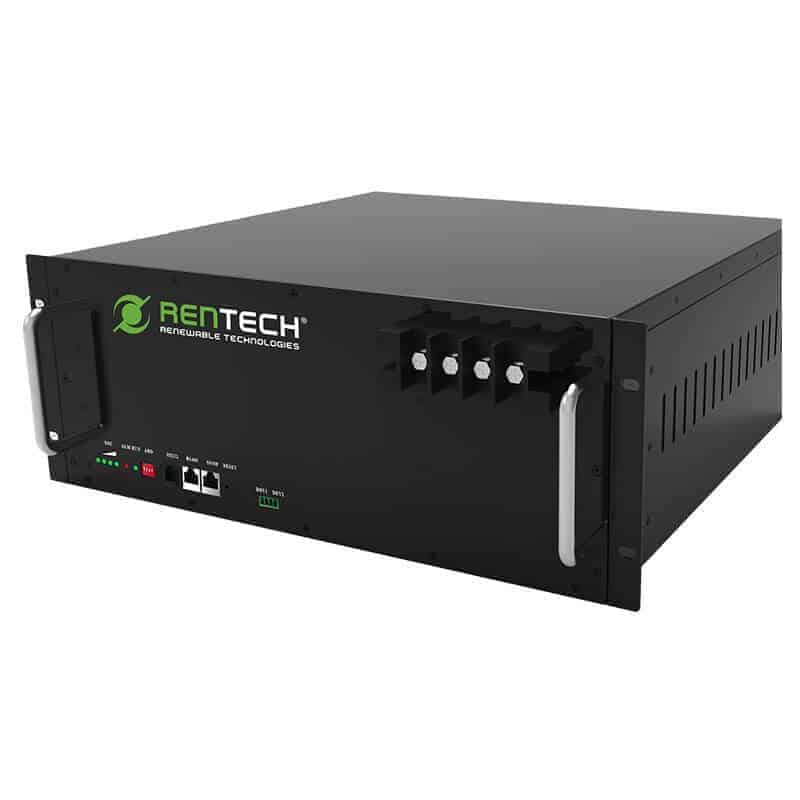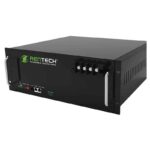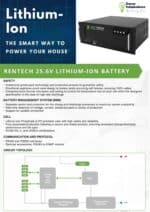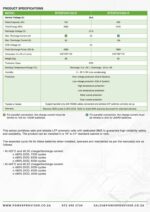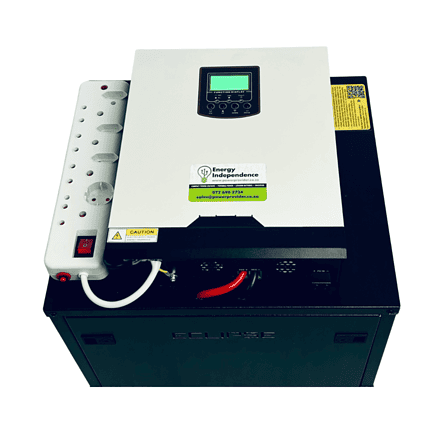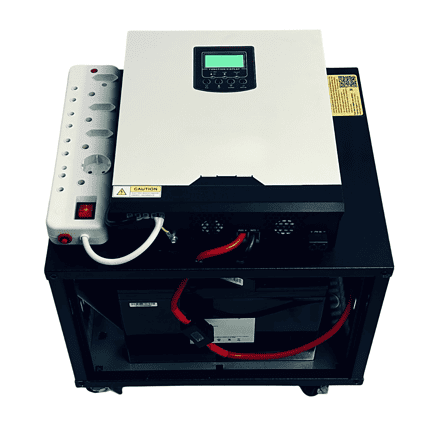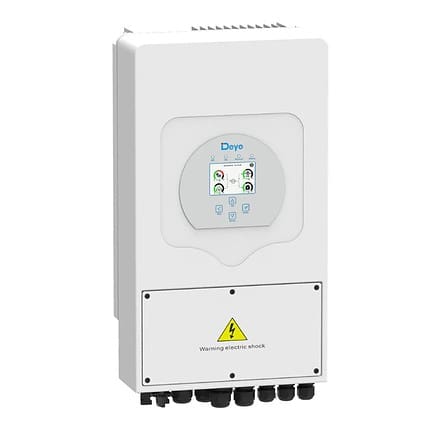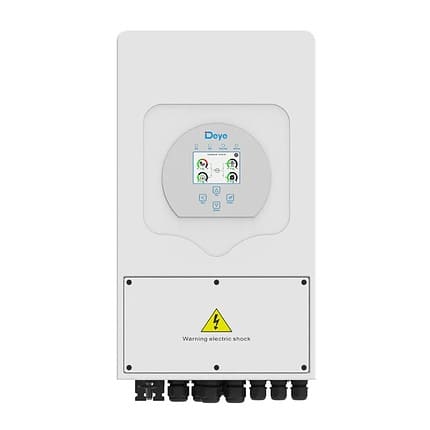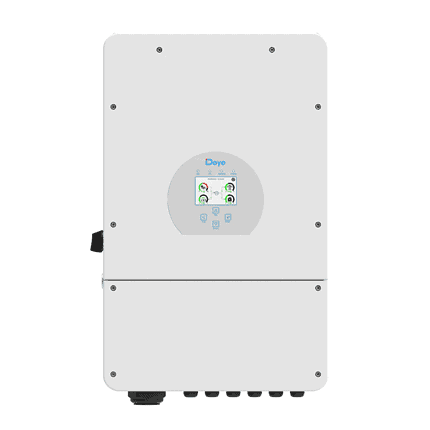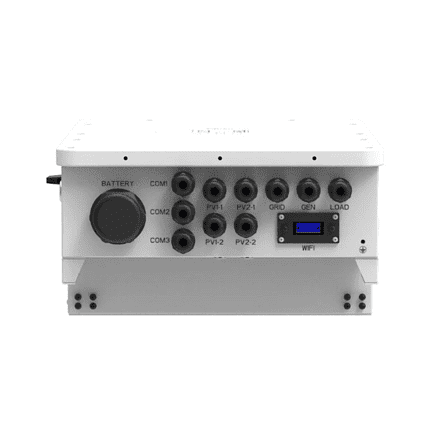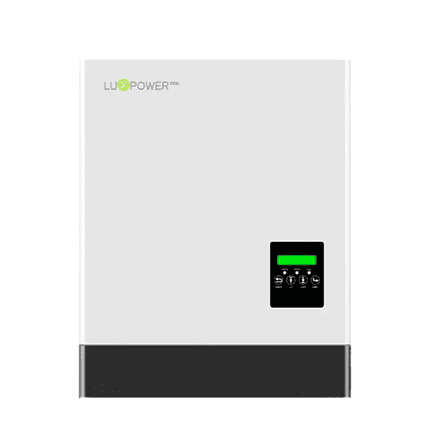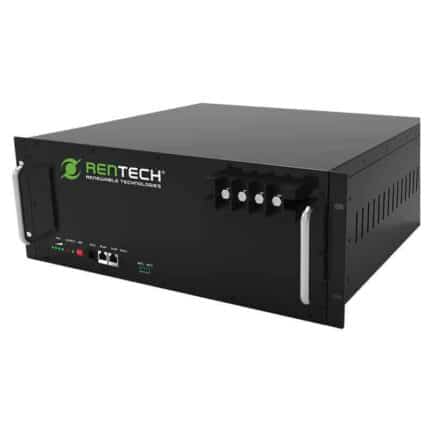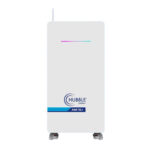
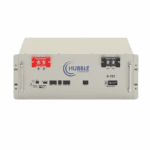
Rentech 25.6V 100Ah Rack-Mounted Lithium-Ion Battery – (2.56kWh)
R16,495.00 (incl. VAT)
Rentech 25.6V 100Ah Rack-Mounted Lithium-Ion Battery – (2.56kWh) has the following remarkable characteristics:
- Long lifespan of 6000 cycles at 80% DoD at 25’C.
- Excellent charge and discharge capacity.
- The Batteries can support up to 15 batteries in parallel for expansion.
- The Batteries are set to sleep mode (off) during transportation and storage to reduce loss of capacity.
- Also, disconnect active power from output terminals for enhanced safety.
- Lightweight and compact.
- Easy to install and maintain.
- Built-in Battery Management System (BMS).
- Rack installation design.
- Rentech 25.6V Lithium-Ion Battery – 100Ah / 2.56kWh is superior, empowering, and an excellent long-term investment.
- Environmentally friendly.
Out of stock
Do you need assistance selecting the right product? Contact us today.
Neil: +27 72 690 2734
Rentech provides Lithium-ion batteries with proven Lithium Iron Phosphate (LifePO4) chemical composition.
This product has a 5-year warranty with a 10-year warranty option
Model: BTESF24V100-R
Voltage: 25.6V
Rated Capacity: 100Ah
Total Energy: 2.56 KWh
Recharge Voltage: 27.6V
Dimensions (mm): (d) 430 x (w) 442 (h) 133
Weight: 28,0kg
Cycle Life: >3500
SAFETY
-
- Over voltage protections system
- Low voltage protection system
- High temperature protection
- Low temperature protection
- Short circuit protection
- Over current protection
BATTERY MANAGEMENT SYSTEM (BMS)
- Separate control and protection for the charge and discharge processes to maximize system availability
- Real-time detection of voltage, current, temperature and a variety of protection
- Support for parallel connection
CELL
- Lithium Iron Phosphate (LFP) prismatic cells with high safety and reliability
- Fully automated production following a mature and stable process, ensuring consistent charge / discharge performance and life span
- IEC62133, U and UN38.3 certifications
BENEFITS OF SOLAR BATTERIES
- Source of clean energy
- Reduced noise levels compared to generators
- Cost savings
- Uninterrupted electricity supply
CONSIDERATIONS WHEN CHOOSING SOLAR BATTERIES
Capacity and power ratings
- A battery’s capacity is the total amount of energy it can store, measured in kilowatt-hours (kWh). The power rating is the amount of electricity that a battery can deliver at one time, measured in kilowatts (kW). A battery with high capacity and low power rating will deliver a low amount of electricity for a long time. A battery with a low capacity and high-power rating can run an entire home or larger operation, but only for a few hours.
Depth of Discharge
- Most solar batteries need to retail some charge at all time due to their chemical composition and to prolong their lifespan. The DoD refers to the maximum of a battery’s capacity that should be used. For example, sealed lead-acid solar batteries are usually operated at £ 50% DOD to achieve a reasonable cycle life, while lithium-ion batteries can operate at 80% DOD, 8kWh from a 10kWh battery, and still provide 5 years or more cycle life.
Round-trip efficiency
- Round-trip efficiency represents the amount of energy that can be used as a percentage of the amount of energy required to fully charge a battery. For example, if a 5kWh capacity battery, which delivers 4 kWh electricity, would typically require 110% to 120% times the 4kWh to be fully recharged. The battery has 80% to 90% in round-trip efficiency. One should, however, remember that the battery is part of the total system, and the system also has inefficiencies and energy losses.
Battery life and warranty
A battery’s ability to hold a charge gradually decreases the more it is used. For example, a battery might be warrantied for 5000 cycles or 10 years at 70% of its original capacity. This means that at the end of the warranty, the battery will have lost no more than 30% of its original ability to store energy.
Solar batteries come with warranties that guarantee a certain number of cycles and/or years of useful life.
This product has a 5-year warranty with a 10-year warranty option
| Weight | 28 kg |
|---|---|
| Dimensions | 44.2 × 40 × 13.3 cm |
Related products
2.5kVa 2.56kWh Lithium Compact Power Station – 2500W
Out of stock


